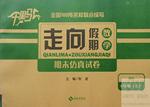题目内容
14.BEIJING-China has the world's largest population of citizens over age 65and in the coming decades their numbers are expected to quickly grow.Already,officials are struggling to cope with the rising numbers of elderly at a time when there is a shortage of nursing home beds and certified caregivers.Feng Jie is a trained nurse who decided a year and half ago to leave her job at a state-run hospital and work with a private nursing company.
She says that unlike her job at the hospital,she now gets to spend more quality time with patients and as an added bonus her pay is better.Still,few have followed in her footsteps."It was a risk[to come to work here].All of my classmates still work in hospitals.I thought that I'd give it a try because this industry,this type of job is still an emerging field,"she said.
China's population is aging at one of the fastest rates in the world.By the middle of the century,more than 450million people will be over 60years of age.
China lacks both the facilities and the staff to adequately care for the elderly,says Du Peng,director of the Institute of Gerontology(老年学) at Renmin University-the only program of its kind in China."We have four million beds available,one caretaker for every three elderly.We should have more than a million caretakers,if in the future we will have 30million elderly then we need 10million caretakers,"she explained."But at the moment in China every year only 6,000gerontology professionals are certified."
Right now most of China's nursing homes are state owned,but through incentives(激励) to private enterprises,caregivers and stipends(生活津贴) for the elderly,the government is looking to shake up the market.
Li Xinyue says such incentives helped her quickly find a job at a private nursing home after graduating."When I was still in school I thought about where I would work afterwards,and at the time the government was issuing some policies to assist private institutions…there were many privately run institutions available,so there were more to choose from,"Li Xinyue stated.
In addition to cutting red tape to allow more foreign and private investment in elderly care,the government is testing ways to encourage caregivers to seek more training and keep certified nurses in the field.
"It is a bit like the reform of China's economic system thirty years ago,when it was mostly state owned enterprises and there was a break with that and a promotion of economic development.Now we are seeing a similar thing with the break down of the bottleneck,"said Peng.
As more elderly Chinese turn to nursing homes for care,authorities hope investors see profit in the country's demographic challenges,and add to the 400,000nursing homes that now are mostly state run.
55.What's the main idea of the passage?D
A.China has the world's largest population of citizens over age 65.
B.In the coming decades the number of citizens over age 65is expected to quickly grow.
C.Officials are struggling to cope with the rising numbers of elderly in China.
D.There is a shortage of nursing home beds and certified caregivers in China.
56.Why did FengJie leave her job at a state-run hospital and work with a private nursing company?D
A.Because she was asked to work there by the institution.
B.Because she was not satisfied with the hospital she was working in.
C.Because she wanted to get a better pay.
D.Because it is a new industry and she wanted to have a try.
57.From the fifth paragraph,we can conclude thatD.
A.there is only one Institute of Gerontology in China
B.we have got enough beds available in China.
C.one caretaker for every three elderly is quite perfect
D.in China every year only 6,000gerontology professionals are certified
58.What's the government policy to cope with the problem of the rising numbers of elderly and a shortage of nursing home beds and certified caregivers?D
A.Encouraging the caretakers to work at state owned institutions.
B.Reducing the state owned institutions.
C.Encouraging more elderly Chinese to turn to nursing homes for care
D.Motivate more investors to run private nursing homes.
分析 本文主要讲随着老年人口的增多,中国急缺养老服务中心和护理人员.
解答 55---58 DDDD
55.答案D.主旨大意题.根据第一段Already,officials are struggling to cope with the rising numbers of elderly at a time when there is a shortage of nursing home beds and certified caregivers可知,本文主要讲随着老年人口的增多,中国急缺养老服务中心和护理人员.故选D.
56.答案D.细节理解题.根据第三段I thought that I'd give it a try because this industry,this type of job is still an emerging field,"she said可知,她放弃原来的工作主要因为它想尝试这一新兴产业.故选D.
57.答案D.细节理解题.根据第五段But at the moment in China every year only 6,000gerontology professionals are certified可知,中国每年只有6000名获得证书的老年学专业人员.故D正确.
58.答案D.推理判断题.根据第六段Right now most of China's nursing homes are state owned,but through incentives(激励) to private enterprises,caregivers and stipends(生活津贴) for the elderly,the government is looking to shake up the market,第七段there were many privately run institutions available,so there were more to choose from,"Li Xinyue stated可知,国家鼓励开设更多的私人养老院.故选D.
点评 科普类文章一般由标题(Head line),导语(Introduction),背景(Back ground),主体(Main body)和结尾(End)五部分构成.标题是文章中心思想高度而又精辟的概括,但根据历年的高考情况来看,这类阅读理解材料一般不给标题,而要同学们选择标题.导语一般位于整篇文章的首段.背景交待一个事实的起因.主体则对导语概括的事实进行详细叙述,这一部分命题往往最多,因此,阅读时,同学们要把这部分作为重点.结尾往往也是中心思想的概括,并与导语相呼应,命题者常在此要设计一道推理判断题.在进行推理判断时,同学们一定要以阅读材料所提供的科学事实为依据,同时所得出的结论还应符合基本的科普常识.

 千里马走向假期期末仿真试卷寒假系列答案
千里马走向假期期末仿真试卷寒假系列答案| A. | Anyone | B. | The person | C. | Whoever | D. | Those who |
| A. | so | B. | so that | C. | that | D. | why |
| A. | which | B. | where | C. | who | D. | that |
| A. | drive; to ride | B. | driving; ride | ||
| C. | to drive; riding | D. | drive; ride |